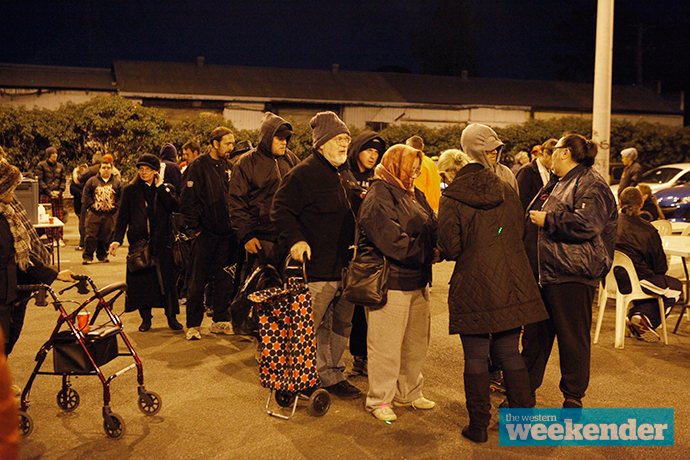With temperatures soaring again this weekend, Denis Walsh, State President of the St Vincent de Paul Society NSW, suggests we spare a thought for those experiencing homelessness and are unable to escape the heat.
“While we are considering where to go and how to beat the heat this weekend, we should remember those sleeping rough or in unsuitable accommodation,” says Mr Walsh.
“Rough sleepers will find it hard to cool down, to access clean drinking water, and take a shower. Sleeping under a bridge or in a garage can be unbearable, with the added problem of mosquitoes.
“Our Night Patrol Vans make sure they have plenty of ice cold water for people to take away with them.
“We find more people come to our day centres where they can spend time in air conditioned buildings and have cold water to drink.”
Jack de Groot, CEO of the St Vincent de Paul Society NSW, said that people on low incomes, particularly the elderly, suffer heat-related issues, because they can’t afford the additional costs of running a fan.
“During these incredible periods of hot weather there are more casualties than any other disaster or emergency. Dehydration, exhaustion and strokes can directly and indirectly result in death,” he said.
“The sad reality is that low income earners have the highest energy costs because their homes are poorly insulated, and their fans are the cheapest to buy but are electricity guzzlers.
“Many of the people we assist struggle to pay their bills and have to choose between a meal or a cool home.”
High energy usage affects the poorest families hardest.
Since 2008, electricity prices have doubled and, according to the ABS, low income households spend around three times that of high income households: on average almost 10 per cent of their weekly income goes to energy costs.
The ABS found that nearly one in five low income households could not pay their energy bills on time, while 13 per cent had their electricity or gas services disconnected during 2011-12.
With high income households, only five per cent were unable to pay their bills on time and two percent had their services disconnected.
Mr de Groot says: “Our advice is for everyone to keep their water and fluid intake up. Our volunteers and services are available to offer support wherever they can: we distributed $920,944 worth of Energy Accounts Payment Assistance (EAPA) vouchers for electricity bills across the state over the Christmas period in 2015.”

Weekender Newsroom
This post has been published by the team in our newsroom.

